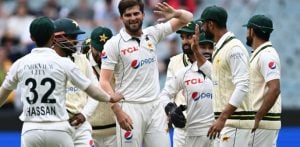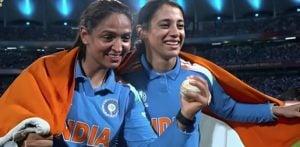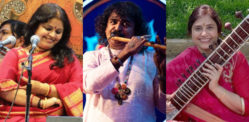"There is little reason to think this would not be the case in India."
In March 2025, Dr George Musgrave revealed that musicians face alarmingly high suicide rates compared to the general public.
His analysis of UK and US mortality data showed that male musicians were 20% more likely to die by suicide than the national average, while rates among female musicians were 67% higher.
Similar trends appeared in the US, sparking questions about how safe it is to work in the music industry.
Now, the world-leading expert is turning his focus to India.
Dr Musgrave, from Goldsmiths, University of London, is leading the country’s first nationwide study into musicians’ mental health in partnership with the Global Music Institute (GMI), TATVA, and the Indian Performing Rights Society (IPRS).
The project, titled It’s Time to Talk, seeks to uncover the mental health realities of Indian musicians, from chart-topping stars to emerging independent artists.
The research comes amid a growing conversation around mental health in Indian music, with figures like AR Rahman, Amaal Mallik, and Badshah opening up about depression and anxiety.
Yet, despite increased awareness, stigma and a lack of infrastructure continue to hold the industry back.
In an exclusive interview with DESIblitz, Dr Musgrave said: “Research on musicians’ mental health throughout the world shows a mixture of culturally specific factors alongside more universal experiences.
“Musicians at the start of their careers often find reconciling the economic reality in the pursuit of their dream hard to square; those who are more established might suffer from challenges presented by fame, while those at all levels experience things like relationship strain, challenges around identity and self-worth, and the challenges of working in such an unpredictable and often unregulated labour market.
“There is little reason to think this would not be the case in India.
“What will be fascinating is to understand the specific challenges faced by this particular market, which differs in many key respects from the UK, US or Europe.
“Our research is unprecedented at this scale, and we hope to shine a light on these challenges and work with stakeholders in India to develop initiatives musicians tell us they want and need.”
A central focus of the study is India’s economic divide between the film and non-film music sectors.
Dr Musgrave explained: “The first area of interest is the huge disparity between the economic power and influence seen within the ‘film music industry’ in India (dominated by Bollywood), and the ’non film’ sector, which overlaps with the term ‘independent music’.
“We are particularly interested in the non-film sector given how historically marginalised it has been.”
He also pointed to regional differences in mental health patterns, specifically “mental health incidences” and “what is called ‘help seeking’.”
Dr Musgrave added: “There were also urban-rural splits. We hope to get a large and broad enough sample size to see how these play out in the musical community too.”
Gender inequality will also form a key part of the analysis:
“The music industry around the world reports high levels of gender-based violence and discrimination.
“In the UK, this was even the subject of a Parliamentary enquiry (‘Misogyny in Music’).
“We know that in Indian society more broadly, sexual violence and harassment are prevalent threats in women’s lives.
“In this respect, I suspect we will, unfortunately, see many of these experiences plaguing survey respondents’ lives.
“These experiences are determinants of mental health outcomes. We hope to, for the first time, be able to ascertain the scale of this within the Indian music industry.”
Despite India’s music market being reported as “only second to the US and surging“, the reality on the ground is different, with financial insecurity being a concern.
Dr Musgrave cited research by Aditya Lal of the University of Leeds, who found that India’s per capita music revenue is among the lowest globally.
He said: “At US$0.16, the country’s per capita revenue from recorded music is actually among the lowest in the world; and despite entering the top five user markets for Spotify globally in just four years, India was not a top five revenue market for Spotify.
“Much of this is rooted in Indian consumers’ unwillingness to pay for music.”
“This, alongside it being such a vast and competitive marketplace, especially with film music, means ensuring financial viability is a huge challenge for musicians.”
Perhaps the most sensitive challenge the team faces is cultural stigma.
Dr Musgrave admitted: “Researching mental health in India compared to previous work I have done (in the UK, France and Denmark) is clearly an enormously different cultural climate.
“Attitudes to mental health and wellbeing, as well as ideas around spirituality, are entirely different, and the cultural stigma and shame around mental health (particularly in rural communities) is of course high.
“It is for this reason, in fact, that the project is called ‘It’s Time to Talk’.”
Crediting GMI’s Megha Balani and Senjuti Maitra, and TATVA’s Kripi Malviya for ensuring cultural sensitivity, Dr Musgrave added:
“Their expertise of Indian music and Indian society meant we could design a survey which took account of stigma and sensitivities around this topic.
“This meant not collecting any personal data from respondents, making the survey entirely anonymous, and adding warnings before sensitive questions.”
The study, which aims to capture voices across India’s vast music landscape, is expected to provide the first comprehensive understanding of musicians’ mental health in the country.
For a sector built on creativity but shadowed by silence, It’s Time to Talk could mark the beginning of lasting change.






























































